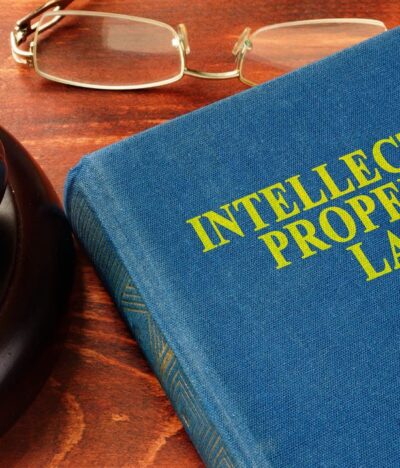Under California law, all tenants in commercial units have the right to enjoy their property quietly. The law is in place so tenants can fully benefit and enjoy their property without unnecessary interference from the landlord. In the case Nativi v. Deutsche Bank National Trust Company, it was decided that every lease is presumed to have a covenant of quiet enjoyment.
In certain instances involving commercial leases, the landlord and the tenant can agree to either waive or modify the covenant of quiet enjoyment. Landlords in particular may attempt to limit their responsibilities and reduce their exposure to liability by narrowing the scope of the covenant in the contract. It is crucial that all commercial landlords and tenants are aware of the ways in which to limit the covenant so both parties are protected.
As it relates to the current situation with COVID-19 and eviction moratoriums, some states have prohibited landlords from interference with a tenant’s quiet enjoyment of their property. Within this context, it is important that commercial landlords be aware that attempting to evict or force out non-paying tenants can result in penalties.
Lawsuits Involving Covenant of Quiet Enjoyment
When a lawsuit is filed for the breach of quiet enjoyment, it is typically the tenant that takes legal action. This is due to the fact that the covenant protects the tenant and when a landlord breaches the contract by interfering with the tenant’s ability to use their space in quiet, the tenant can file a lawsuit. To be successful with these lawsuits, tenants must prove that the landlord acted, or failed to act, in a manner that significantly interfered with the tenant’s right to enjoy the property.
However, because commercial leases, in particular, involve so much negotiating, during which the landlord may limit their responsibilities, it is essential that both landlords and tenants clearly understand what the contract requires.
Damage Caps
Landlords may try to place a cap, or limit, on their liability for damages they are liable for according to the lease. These caps are not typically included within the covenant of quiet enjoyment itself but rather, in other areas of the lease. Landlords will typically include other provisions that state the landlord is not liable under any circumstances when a commercial tenant’s business suffers from a loss due to the actions of the landlord.
For example, a landlord of a shopping mall may include within their lease agreements that they are allowed to renovate the shopping center whenever needed. The landlord may also include within this specific provision that they are not liable for any damages the tenant incurs as a result of the renovation. This provision may impact the covenant of quiet enjoyment and essentially render it null and void.
Express Disclaimers
Landlords may also include an express disclaimer that limits their liability for breach of contract in specific regards to a covenant of quiet enjoyment. Express disclaimers are often written in the form of “as is” clauses, and they are something commercial tenants should be particularly cautious about.
For example, a commercial tenant may rent a space to run their spa, which is by the very nature of the business, a place of quiet and relaxation. However, the premises may have a very old air conditioning unit that does not work very well and that makes excessive noise throughout the day. Clearly, an air conditioning unit that rattles and hums very loudly could interfere with the business owner’s operations, as it will limit the amount of peace and quiet the business can provide to their clients.
Unfortunately in a case such as this, an “as is” clause could supersede or override a covenant of quiet enjoyment, even when the covenant is explicitly stated in the contract. Due to the fact that the spa owner signed a contract accepting the property “as is,” they agreed to rent the premises in the condition it was in at the time of signing. Any contract stating that the property is accepted in the condition it is currently in poses a great risk to commercial tenants and they should always be very wary of signing any contract with such provisions.
Payment of Rent
When tenants pay their rent in full and on time, they have many rights. They have the right for their property to be properly maintained, repairs to be made quickly when necessary, and the right to quiet enjoyment of their space. Unfortunately, a tenant that does not pay their rent appropriately does not enjoy those same rights. Contrary to popular belief, commercial tenants also cannot withhold their rent due to a landlord that does not fulfill their obligations, unless such a provision is included in the lease.
For example, the roof of a commercial office building may suffer from water damage, which causes a leak that drains into the office space below. That leak could interfere with the tenant’s right to quiet enjoyment of their space. However, if the leak began in September of 2019 and the tenant stopped paying their rent in August of 2019, they may not have a valid claim.
Unlike a tenant stopping payment on rent due to the landlord’s refusal to fulfill their obligations, the California courts have found that if a tenant breaches the contract first by not paying rent, the landlord does not continue to carry the same obligations. As such, a covenant of quiet enjoyment would likely not be upheld and the landlord would likely win the case.
How can a Real Estate Lawyer Help?
Both commercial tenants and landlords have certain rights and obligations under California law. Determining when a landlord has breached the covenant to quiet enjoyment will depend on the unique facts of a case and the lease agreement between the two parties. A real estate lawyer can help draft these agreements to limit a landlord’s liability and will review them when determining whether a tenant is forfeiting their rights by signing leases containing certain clauses and provisions.
Call Our California Real Estate Lawyer Today
If you are a commercial landlord that needs help drafting a lease, or you are a tenant that wants to protect your rights upon signing, our Santa Monica real estate lawyer is here to help. At Klein Law, we know the language to use to limit a landlord’s liability while still ensuring the tenant’s rights are left intact. Call us today at (310) 295-2261 to schedule a consultation and to learn more about how we can help with your case.






